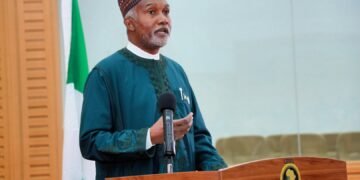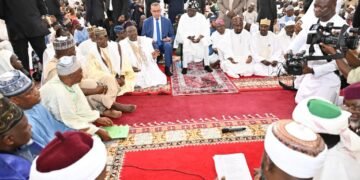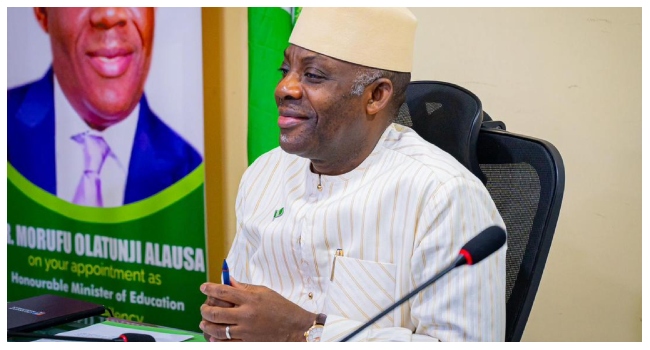The Federal Government has announced a sweeping ₦6 billion reform of the national scholarship programme, aimed at expanding access to quality education and easing the financial burden on Nigerian students and their families. The initiative, described by the Minister of Education, Dr. Maruf Olatunji Alausa, CON, as the most ambitious overhaul in more than a decade, is expected to benefit over 15,000 students during the 2025–2026 academic session.
Dr. Alausa said the expanded scholarship scheme aligns with President Bola Ahmed Tinubu’s Renewed Hope Agenda, which places education at the center of Nigeria’s economic transformation. He noted that the reform is not just a policy shift but a national investment in the country’s youth and future prosperity.
As part of the reform, scholarship awards have been increased by 50 percent across all academic levels. PhD students will now receive ₦750,000 annually, up from ₦500,000; Master’s students will receive ₦600,000, up from ₦400,000; while undergraduates, HND, and NCE students will receive ₦450,000, up from the previous ₦300,000. These increases apply to all key schemes, including the Nigerian Scholarship Award.
The Federal Ministry of Education has also restructured the Bilateral Education Agreement (BEA) scheme. While current beneficiaries of foreign scholarships will continue to receive their entitlements, the government has redirected funds previously allocated for new international awards to two new categories under the national scholarship programme. One category targets students in public polytechnics pursuing STEM and vocational education, with ₦1 billion set aside for this group. The second focuses on students studying Medicine, Dentistry, Nursing, Pharmacy, and Physiotherapy in public universities, with another ₦1 billion allocated.
A revised allocation framework has also been introduced to ensure fairness and strategic national impact. Under the new structure, half of all scholarships will go to undergraduate students, while Master’s and PhD students will each receive 25 percent. Seventy percent of all scholarships across these categories will be awarded to students in Science, Technology, Engineering, Mathematics, and Medical Sciences (STEMM), while 30 percent will support students in the Social Sciences. Additionally, five percent of all awards have been reserved for students living with disabilities, reinforcing the government’s commitment to inclusion.
The implementation of the reformed scholarship scheme will be overseen by the Federal Scholarship Board in collaboration with an Inter-Ministerial Committee chaired by the Ministry’s Permanent Secretary. The committee includes representatives from the National Assembly, the Federal Character Commission, the Ministry of Women Affairs, and other key agencies to ensure transparency, accountability, and equitable distribution.
Dr. Alausa reaffirmed the Ministry’s dedication to seeing the programme succeed and called on students, parents, institutions, and the wider public to support the initiative. According to him, this reform is more than a financial intervention—it is a deliberate and strategic step toward building the human capital foundation required for Nigeria’s long-term success.

































